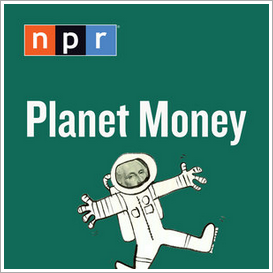A simple fact too many folks don’t seem to understand.
The other day, I was at a social gathering with a bunch of friends and neighbors. Conversation turned to a good friend of mine with a very large, underutilized garage. I mentioned that during the winter, he rents out storage space for the season to people with boats, RVs, and other vehicles not likely to be used in the winter. This brings in some extra cash for his winter travels to the south.
“What a great idea!” one of my neighbors said. She turned to another member of the group. “See? There are all kinds of ways people can make money. I don’t see why we should be paying for them.”
I could tell that she’d used my story to continue a conversation she’d had earlier with other people in the group. But she was missing an important point.
“It’s all about assets,” I said. I told the group about how I’m currently being paid to have my helicopter parked in a snug hangar in California in case it’s needed. Yes, I’m bringing in cash without seeming to do anything. But the asset that’s making that possible has cost me more than a half million dollars in the past 13 years to buy, maintain, overhaul, and insure. It’s not as if I’m getting money for nothing.
 The same goes for my friend. If he didn’t have that big garage, could he rent out space to boat owners? No. What did it cost him to build that garage? Maintain it? Insure it? All that costs money.
The same goes for my friend. If he didn’t have that big garage, could he rent out space to boat owners? No. What did it cost him to build that garage? Maintain it? Insure it? All that costs money.
The sharing economy has given us all kinds of ways to bring in a little cash on the side. It’s no secret that before I sold my big fifth wheel, I parked on my driveway and rented it out on AirBnB for $89/night with a two-night minimum. I had people in it nearly every weekend that summer. But could I have done that if I didn’t have the fifth wheel? Or acreage with an amazing view and a full RV hookup? What did it cost me to buy the fifth wheel and land? And set up the power, sewer, and water hookups? All that costs money.
And then there’s Uber and Lyft, two ride-sharing companies. Yes, you can drive people around and get paid for it. But to do that, you need a car that meets certain requirements for age and style and that car has to be insured. All that costs money.
The conversation didn’t go this far. It moved on to other things before I could make this point. It didn’t matter. I like my neighbors, even though I think some of them are politically misguided, and didn’t want to ruin the evening with a possibly heated debate. We’re among the fortunate Americans. Neither rich nor poor, we are homeowners on the downhill slope of life, able to take care of all of our needs with a little left over for extras. Life’s not easy, but it certainly isn’t hard.
Yet some of us understand what it’s like for the people who struggle to get by. We empathize, possibly because we’ve been in their shoes in the past. We don’t expect them to produce money out of thin air with creative use of assets they couldn’t possibly afford when they’re having enough trouble putting a roof over their head and food on the table. We don’t mind paying a little extra in our taxes to help them with social services programs or, even more importantly, to fully fund our school systems to help their kids get a path out of poverty through education.
But it’s the mindset of my friend — the complete lack of understanding of how difficult it can be for certain people to earn a decent living — that bothers me. It’s an almost “let them eat cake” moment. And sadly, it’s shared by far too many Americans these days.



 The same goes for my friend. If he didn’t have that big garage, could he rent out space to boat owners? No. What did it cost him to build that garage? Maintain it? Insure it? All that costs money.
The same goes for my friend. If he didn’t have that big garage, could he rent out space to boat owners? No. What did it cost him to build that garage? Maintain it? Insure it? All that costs money.